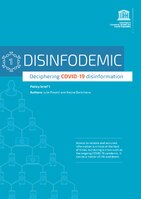
Photo from wikipedia
The purpose of this study was to investigate the perception of in-vitro meat (IVM) among New Zealand consumers and to understand their purchase and consumption behaviour using the Theory of… Click to show full abstract
The purpose of this study was to investigate the perception of in-vitro meat (IVM) among New Zealand consumers and to understand their purchase and consumption behaviour using the Theory of Planned Behaviour framework developed in this study. An online survey questionnaire was created using the Qualtrics software to understand the perception of IVM, based on the conceptual framework. Participants (n = 206) were recruited in this survey, and the data collected were subjected to PLS-PM analysis. The conceptual framework was tested for validity, and Goodness of fit (GoF). The internal validity was assessed using Cronbach’s alpha, KMO value, inter-item correlation values (β-coefficients) and p-values. The findings suggest that variables such as environment and sustainability, health and safety, as well as current purchase and consumption behaviour have a strong relationship and a robust effect on IVM purchase and consumption behaviour. Consumers’ cultural beliefs had minimal influence on IVM purchase likelihood. Results in this study also indicated that most New Zealand consumers had neutral opinions in terms of engaging with IVM.
Journal Title: Sustainability
Year Published: 2021
Link to full text (if available)
Share on Social Media: Sign Up to like & get
recommendations!